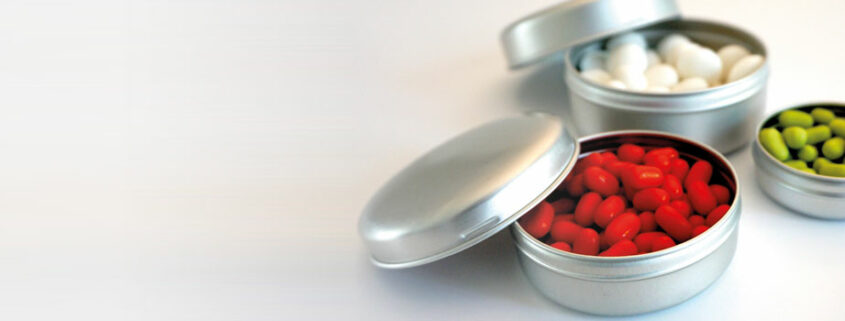Why zero plastic packaging is an unreachable goal
Chris Saunders, Managing Director, Roberts Metal Packaging
‘Plastic-free’ sounds fantastic, doesn’t it?
But don’t get too excited – the fact is that there is no closure that doesn’t have some plastic in the liner. Many brands, designers and consumers are finding this difficult to accept, and we need to encourage clients to understand that reducing plastic is a momentous first step. For many of them, the only realistic one.
Plastic is an essential component in high quality closures on metal packaging because – put simply – as part of a liner it serves as a product barrier. A liner is important because it helps create an airtight seal, therefore avoiding product contamination and preventing both leaks and evaporation.
We could offer plastic free packs without a liner – but with a high risk of evaporation and/or leakage – it probably wouldn’t be a popular choice!
Have you ever used the paper straws sometimes served with milkshake cups? They go soggy halfway through your drink. The same thing applies here – if you wanted to use paper liners in metal pack closures, the product would be absorbed into the porous paper, and consumers would be left with a mess.
Some liners are also designed to cushion, and to create compression when the lid is screwed down – but paper liners would be crushed out of shape within a couple of uses. Be aware that any closures advertised as having paper liners would still include a coating of plastic – it’s just greenwashing if they don’t mention it.
Interestingly, the issue that many clients seem keen to discuss is how to recycle the plastic liners in metal packaging – but the answer is always a lot simpler than they expect. You don’t.
The liner is very small, and if you correctly recycle the metal packaging (which is very important) the liner will be burnt off during the metal recycling process. This way, no additional plastic is added to landfill or oceans, which is one of the main concerns.
Many clients and consumers see zero-plastic packaging as the ultimate end-goal for the environment and circular economy. But plastic recycling doesn’t work in the same way as metal recycling. Metal has a fixed and well-established route back to reprocessing; with plastic, the route is not as well defined and consumer confusion is common. This is likely down to an uncoordinated approach from local authorities and confusing on-pack messaging.
Whilst our liner material (EPE) is recyclable, there is no infrastructure to support the process – and it seems very unlikely that most consumers would remove the liner for a separate waste stream if there was. Rubber and silicone alternatives are prohibitively expensive, make the products smell and would likely run into the same problems with consumers not separating liners for recycling. Waxed paper has also been trialled but less effective in providing a good seal. And even cork is impregnated with neoprene so that has plastic in it too.
For us, the right thing to do moving forwards is to help people understand and appreciate why reduced plastic is a better goal than zero-plastic. Our EPE and other liner materials (if requested by clients) are highly regulated and compliant with EU, REACH and food legislation. They are the best choice for metal closures because they provide the best seal – it’s really that simple. Any further issues clients and consumers have with the use of plastic in closures should be redirected to local councils and recycling centres. Perhaps the next environmental movement should focus on building more available recycling streams for plastics – and how the consumer should behave in sorting recyclable materials for collection.
Our clients can rest assured that we have used the thinnest liners for our closures, using as little plastic as possible to continually maintain the highest standard in finished metal packs.
If you would like to discuss Roberts Metal Packaging material choices and sustainability credentials, the team would be delighted to hear from you: salesteam@roberts-metpack.co.uk



